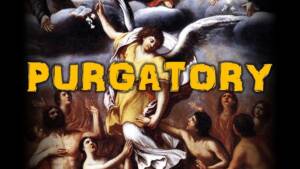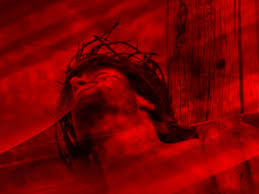
2 Corinthians 5:8
We are confident, I say, and willing rather to be absent from the body, and to be present with the Lord.
2 Corinthians 5:11
Knowing therefore the terror of the Lord, we persuade men; but we are made manifest unto God; and I trust also are made manifest in your consciences.
The doctrine of Purgatory is a teaching primarily held by the Roman Catholic Church, and to a lesser extent by some Eastern Orthodox and Anglican Christians. It refers to an intermediate state after death in which the souls of some of the faithful undergo purification so as to achieve the holiness necessary to enter heaven.
Key Points of the Doctrine of Purgatory
Purgatory is for the saved, not the damned – it is not a second chance but a place or state of purification for those who died in God’s grace but are not yet perfectly holy.
It involves temporary suffering – to purify the soul from venial sins or the temporal punishment due to sin.
Prayers and Masses offered by the living can help the souls in purgatory.
Biblical Basis (Indirect or Supportive Texts)
The word “Purgatory” does not appear in the Bible, and no passage explicitly describes it in full. However, Catholics point to implicit support for the concept in both the Old and New Testaments.
1. 2 Maccabees 12:42–46
“It is therefore a holy and wholesome thought to pray for the dead, that they may be loosed from sins.”
This is the clearest Old Testament support. It shows Jewish practice of praying for the dead—implying that the dead can be helped after death.
Note: This book is part of the Deuterocanonical books (accepted by Catholics and Orthodox but not by most Protestants).
2. 1 Corinthians 3:13–15
“Each one’s work will become manifest, for the Day will disclose it… If anyone’s work is burned up, he will suffer loss, though he himself will be saved, but only as through fire.”
This is often cited as describing a purification process. The person is saved, but still suffers loss, “as through fire”—interpreted by Catholics as a reference to purgatorial purification.
3. Matthew 12:32
“And whoever speaks a word against the Son of Man will be forgiven, but whoever speaks against the Holy Spirit will not be forgiven, either in this age or in the age to come.”
Implies that some sins can be forgiven after death, suggesting an intermediate state.
4. Revelation 21:27
“But nothing unclean will ever enter [heaven], nor anyone who does what is detestable or false…”
Emphasizes the need for complete purification before entering heaven.
5. Hebrews 12:14 & 12:23
“Strive for… the holiness without which no one will see the Lord.” (v.14)
“…to the spirits of the righteous made perfect.” (v.23)
Suggests a process by which the spirits of the righteous are made perfect—interpreted by some as purgatorial purification.
Early Church and Tradition
While the explicit doctrine of purgatory was more clearly defined in later Church councils (e.g., Council of Florence, Council of Trent), early Church Fathers like St. Augustine and Origen wrote about a post-death purification process.
Summary
Biblical support is indirect, relying on interpretation and tradition.
Key idea: souls who die in grace but still need purification go through a process (purgatory) before entering heaven.
Catholic Church relies on Sacred Tradition as well as Scripture to support this doctrine
Refuting the doctrine of Purgatory from a Biblical standpoint typically comes from Protestant theology, which emphasizes sola scriptura—the belief that doctrine must be based solely on Scripture. Since the Bible does not explicitly teach about a place or process called purgatory, many Protestants view it as unbiblical.
Here are some of the primary biblical arguments used to refute the doctrine of purgatory:
✅ 1. Jesus’ Sacrifice is Fully Sufficient
Key Verse:
Hebrews 10:14 – “For by a single offering he has perfected for all time those who are being sanctified.”
Argument:
Jesus’ sacrifice on the cross completely atones for sin.
There is no need for additional purification or suffering after death, because Christ’s atonement is once for all and totally sufficient.
✅ 2. Believers Go Immediately to Be with Christ

Key Verses:
2 Corinthians 5:8 – “To be absent from the body and to be present with the Lord.”
Philippians 1:23 – “My desire is to depart and be with Christ, for that is far better.”
Argument:
Paul expresses confidence that upon death, believers are immediately with Christ, with no mention of an intermediate purification state.
If purgatory existed, one would expect Paul (or other apostles) to warn believers about it.
✅ 3. No Condemnation or Punishment for the Saved
Key Verse:
Romans 8:1 – “There is therefore now no condemnation for those who are in Christ Jesus.”
Argument:
If someone is in Christ, they are justified, not under any remaining penalty.
Purgatory implies ongoing punishment or suffering, which seems to contradict this assurance.
✅ 4. Forgiveness = Cleansing
Key Verse:
1 John 1:7, 9 – “The blood of Jesus his Son cleanses us from all sin.”
“If we confess our sins, he is faithful and just to forgive us our sins and to cleanse us from all unrighteousness.”

Argument:
There is no incomplete forgiveness. If God has forgiven and cleansed us, there’s nothing left to purify.
The idea of purgatory suggests that forgiveness through Christ is somehow not fully effective.
✅ 5. The Thief on the Cross Was Promised Paradise
Key Verse:
Luke 23:43 – “Truly I say to you, today you will be with me in Paradise.”

Argument:
The thief had no chance to do penance or be purified after death.
Yet Jesus tells him he will be in Paradise that very day, implying immediate entrance into heaven for the repentant.
✅ 6. No Mention of Purgatory in Final Judgment Passages
Key Passage:
Revelation 20:11–15 – Great White Throne Judgment
Matthew 25:31–46 – Sheep and goats (judgment scene)
Argument:
When Scripture describes final judgment, there is no mention of a third category (heaven, hell, and purgatory).
People are either saved or lost—there’s no intermediary condition.
✅ 7. Deuterocanonical Books (like 2 Maccabees) Are Not Canonical for Protestants
Argument:
One of the main supports for purgatory comes from 2 Maccabees 12, but Protestants reject the Apocrypha as non-inspired.
Therefore, 2 Maccabees cannot be used as authoritative support for doctrine.
❗ Summary of Refutation Points:
Catholic View Protestant Response
Purgatory purifies remaining sin Christ’s blood purifies all sin
Prayer for the dead is helpful No biblical basis for praying for the dead
Sins are forgiven, but temporal punishment remains Christ bore all punishment (Isaiah 53:5)
2 Maccabees shows prayers for the dead Not part of Protestant canon
Luke 16:
19 There was a certain rich man, which was clothed in purple and fine linen, and fared sumptuously every day:
20 And there was a certain beggar named Lazarus, which was laid at his gate, full of sores,
21 And desiring to be fed with the crumbs which fell from the rich man’s table: moreover the dogs came and licked his sores.

22 And it came to pass, that the beggar died, and was carried by the angels into Abraham’s bosom: the rich man also died, and was buried;
23 And in hell he lift up his eyes, being in torments, and seeth Abraham afar off, and Lazarus in his bosom.
24 And he cried and said, Father Abraham, have mercy on me, and send Lazarus, that he may dip the tip of his finger in water, and cool my tongue; for I am tormented in this flame.
25 But Abraham said, Son, remember that thou in thy lifetime receivedst thy good things, and likewise Lazarus evil things: but now he is comforted, and thou art tormented.
26 And beside all this, between us and you there is a great gulf fixed: so that they which would pass from hence to you cannot; neither can they pass to us, that would come from thence.
27 Then he said, I pray thee therefore, father, that thou wouldest send him to my father’s house:
28 For I have five brethren; that he may testify unto them, lest they also come into this place of torment.
29 Abraham saith unto him, They have Moses and the prophets; let them hear them.
30 And he said, Nay, father Abraham: but if one went unto them from the dead, they will repent.
31 And he said unto him, If they hear not Moses and the prophets, neither will they be persuaded, though one rose from the dead.

Let’s Pray:
Father, I come to now, asking that You forgive me my sins. I choose to believe that JESUS died upon the cross and fully paid for my salvation and I receive Him right now. Jesus, I choose to submit to Your plan for my life, not my will, but Yours be done, in me and through me. Come into my heart and change me, that I might live with You forever, AMEN!


